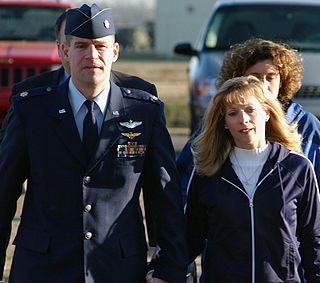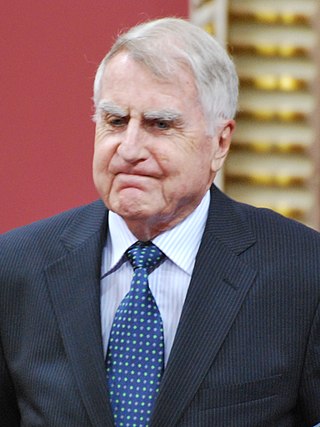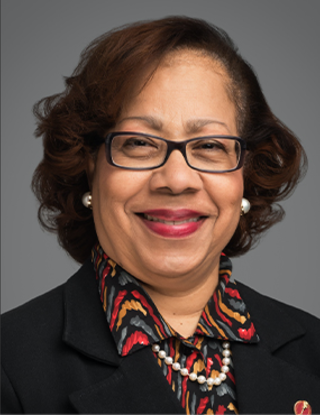Related Research Articles

The International Security Assistance Force (ISAF) was a multinational military mission in Afghanistan from 2001 to 2014. It was established by United Nations Security Council Resolution 1386 according to the Bonn Agreement, which outlined the establishment of a permanent Afghan government following the U.S. invasion in October 2001. ISAF's primary goal was to train the Afghan National Security Forces (ANSF) and assist Afghanistan in rebuilding key government institutions; it gradually took part in the broader war in Afghanistan against the Taliban insurgency.

Kandahār is one of the thirty four provinces of Afghanistan, located in the southern part of the country, sharing a border with Pakistan, to the south. It is surrounded by Helmand in the west, Uruzgan in the north and Zabul Province in the east. Its capital is the city of Kandahar, which is Afghanistan's second largest city, which is located on the Arghandab River. The greater region surrounding the province is called Loy Kandahar. The Emir of Afghanistan sends orders to Kabul from Kandahar making it the de facto capital of Afghanistan, although the main government body operates in Kabul. All meetings with the Emir take place in Kandahar, meetings excluding the Emir are in Kabul.

The Royal 22nd Regiment is an infantry regiment of the Canadian Army. Known colloquially in English as the Van Doos or in French as le Vingt-deuxième, the mostly francophone regiment comprises three Regular Force battalions, two Primary Reserve battalions, and a band, making it the largest regiment in the Canadian Army. The headquarters of the regiment is at the Citadelle of Quebec in Quebec City, also the site of the regimental museum, and all three of its regular battalions are stationed at Canadian Forces Base Valcartier in Saint-Gabriel-de-Valcartier, 15 kilometres (9.3 mi) outside of Quebec City. The regiment is a "British-style" infantry regiment that is the spiritual home and repository of customs and traditions for a number of battalions that do not necessarily serve together operationally. It serves as the "local" infantry regiment for the province of Quebec, where it draws most of its recruits; it is the largest regiment in the province, in terms of numbers.
J. Maurice LeClair was a Canadian physician, businessman, civil servant, and academic.

The Tarnak Farm incident is the killing, by an American Air National Guard pilot, of four Canadian soldiers and the injury of eight others from the 3rd Battalion, Princess Patricia's Canadian Light Infantry Battle Group (3PPCLIBG) on the night of April 17, 2002, near Kandahar, Afghanistan.
Canada's role in the Afghanistan War began in late 2001. Canada sent its first element of soldiers secretly in October 2001 from Joint Task Force 2, and the first contingents of regular Canadian Armed Forces (CAF) troops arrived in Afghanistan in January–February 2002. The operations were aimed at identifying and neutralizing Al-Qaeda members in that country and toppling the Taliban regime which was supporting international terrorism. Canada's role in the Afghan conflict grew in 2006 when Canadian troops relieved US forces in Kandahar province, taking command of the multinational brigade in the region during a major Taliban offensive.

Ahmad Shah Baba International Airport, also referred to as Kandahar International Airport, and by some military officials as Kandahar Airfield, KAF), is located in the Daman District of Kandahar Province in Afghanistan, about 9 NM southeast from the city of Kandahar. It serves as the nation's second main international airport and as one of the largest main operating bases, capable of housing up to 250 aircraft of different sizes. The current head of the airport is Maulvi Fathullah Mansour.

The number of Canadian Forces' fatalities resulting from Canadian military activities in Afghanistan is the largest for any single Canadian military mission since the Korean War between 1950 and 1953. A total of 159 Canadian Forces personnel and 7 civilians have died in the conflict.
Jean H. Dussault was a Canadian endocrinologist. He helped develop a blood test for the early detection of congenital hypothyroidism, a condition of severely stunted physical and mental growth due to untreated congenital deficiency of thyroid hormones.
Jean Rochon was a Canadian politician and member of the National Assembly of Quebec. He was a cabinet minister for several ministries from 1994 to 2003 when the Parti Québécois formed the government under the leadership of Jacques Parizeau, Lucien Bouchard and Bernard Landry.
Train Advise Assist Command – South was a multinational military formation, part of NATO's Resolute Support Mission within Afghanistan. Prior to 2014 it was designated Regional Command South, under the International Security Assistance Force (ISAF).

Simon Mailloux is a serving officer in the Canadian Forces. He was severely injured on 16 November 2007 in an IED incident in Afghanistan. As a result, his left leg was amputated.

Combat Hospital is a medical drama television series, filmed in Toronto, that debuted on Global in Canada and ABC in the United States on June 21, 2011. Its final episode was broadcast on September 6, 2011. The series was known for a time by the working title The Hot Zone before reverting to its original title, Combat Hospital.
Lucien Paiement was a doctor, municipal politician and owner of racehorses in the Canadian province of Quebec.

Ligue1 Québec (L1QC) is a semi-professional men's and women's soccer league in Quebec, Canada. Founded in 2011 as the Première ligue de soccer du Québec, the league is sanctioned by the Canadian Soccer Association and the Quebec Soccer Federation.

Joanne Liu is a Canadian pediatric emergency medicine physician, Associate Professor of Medicine at the University of Montreal, Professor of Clinical Medicine at McGill University, and the previous International President of Médecins Sans Frontières/Doctors Without Borders (MSF). She was elected president during MSF's International General Assembly in June 2013.

Daniel Ménard is a Canadian executive and former Canadian Army brigadier general and NATO commander during the War in Afghanistan. At the time of his promotion, he was one of the youngest general officers in the Canadian Armed Forces. In 2010, he was dismissed from command of Task Force Kandahar in Afghanistan following an affair with a subordinate, and subsequently retired from the military.

Claude C. Roy was a Canadian doctor in Quebec. He is considered one of the founding fathers of the field of paediatric gastroenterology.

Marie-Françoise Mégie is a Canadian physician, university professor at the Université de Montreal and member of the Independent Senators Group in the Senate of Canada. Born in Jacmel, Haiti, she moved to Quebec in 1976.
Jennie Carignan is a Canadian Armed Forces (CAF) officer who has served as Chief of the Defence Staff (CDS) since July 2024. Born in Quebec, she is bilingual and graduated as a military engineer from the CAF’s Royal Military College Saint-Jean. She served as an officer in combat engineering regiments in various Canadian military actions in the 1990s and 2000s including: the Golan Heights; Bosnia; and Afghanistan. As a full colonel, Carignan became Commandant of the Royal Military College Saint-Jean in 2013.
References
- ↑ Potter, Andrew. "The Performer. Maj. Marc Dauphin, military physician". Canadian Business. Retrieved 4 October 2013.
- ↑ "Marc Dauphin" . Retrieved 2 February 2014.
- ↑ "Returning combat doctors suffering from PTSD". Australian Broadcasting Corporation. 1 October 2013. Retrieved 2 February 2014.
- ↑ Dauphin, Marc (9 November 2013). Combat Doctor: Life and Death Stories from Kandahar's Military Hospital. ISBN 978-1459719262.